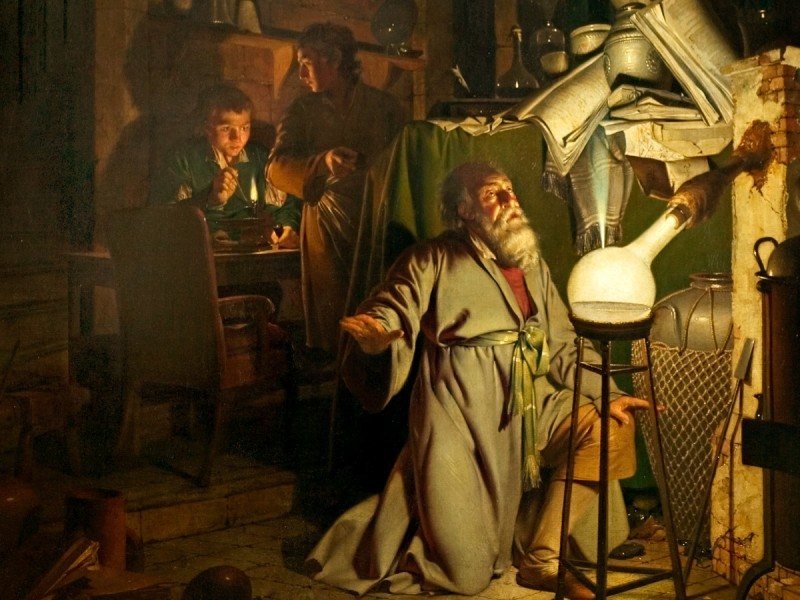The essential idea, or philosophy, that defined the Renaissance was humanism, which placed great emphasis on human values and life. In this spirit, all those things that made the world beautiful and happy were actively pursued, such as language, art, music, science and ideas.
Humanism drew its models and its inspiration from ancient Rome and Greece, and emphasized the joys that were to be found in this life. This was contrary to the earlier (medieval) view that said that this world was to be ignored in order to gain life hereafter.
It was Pico della Mirandola, who best summarized humanism when he stated: “nothing is more wonderful than man.” He also emphasized the importance of the individual whom he defined as “the intermediary between creatures, the intimate of higher beings and the king of lower beings, the interpreter of nature by the sharpness of his senses, by the questing curiosity of his reason, and by the light of his intelligence.”
This new way of looking at things found its perfect vehicle in the discovery of the movable type, or the printing press, since books were suddenly available and helped in the spread of education and knowledge.
Therefore, some fifty years after Gutenberg published his Bible, there were more books printed than had been copied by hand a thousand years before.
Humanism also encouraged interest in the affairs of world, which gave confidence to men and women in themselves – since the individual was seen as a person able to do and achieve he or she desired.
As a result, it was humanism that allowed Renaissance poets, painters, architects, musicians, writers, thinkers, explorers and even politicians to thrive and prosper. For example, painters studied geometry, optics, and anatomy, which
allowed them to create paintings that were three-dimensional – just as our eyes see the world around us. And significantly they rendered the human body not as a thing to be ashamed of, but as an intimate part of nature – and therefore beautiful.
Humanism also gave women an active social and political role. For the first time, we see strong women emerging, such as Queen Elizabeth in England, Catherine de’ Medici who became a regent in France, Marguerite of Navarre the famous author from France, and in Italy there were Beatrice and Isabella d’Este and Caterina Sforza who were important patrons of culture.
There was also progress in science as a result of humanism. Previously, in medieval times, the stress was on understanding symbolism and heavenly visions.
Humanism demanded instead that the world be carefully studied and the laws of nature be minutely observed. This new way of looking at things is exemplified by Nicolas Copernicus, who revolutionized science when he stated that the sun was the center of a vast solar system and that the earth was merely one of the many planets that circled the sun. This was not new, as the Greeks knew this already, but it was restated.
The Church’s objection to Galileo was not because of his science, but because he wanted to say that science alone had all the answers. Here the Church was far better at humanism than Galileo.
It was humanism that allowed a close scrutiny of the Church as well, which had become a powerful political institution, and in which the clergy was busy gathering wealth and land, rather than looking after the spiritual well-being of people.
Consequently, this led to the Reformation, which was started by Martin Luther (1483-1546), who rejected the central authority of the Church and the mediation of the pope and the priests. Luther stressed that any individual, by reading the Bible for himself or herself, could interpret the word of God, without the help of a priest – and the individual could find the ways of God through his or her own efforts.
Lastly, it was humanism that made the Renaissance truly an age of discovery, since it taught that human beings could achieve all things. Thus, the Portuguese navigator Bartolomeu Dias (ca. 1450-1500) sailed to the Southern tip of Africa, and his fellow countryman Vasco da Gama (ca. 1469-1525) made the first trip by sea to India.
And in the same spirit, Christopher Columbus discovered America in 1492, and Ferdinand Magellan (ca. 1480-1521) circumnavigated the entire globe. Similarly, Hernan Cortes (1485-1547) explored and conquered Mexico, and Francisco Pizarro (ca. 1478-1541) conquered Peru. During this time, the English, the French, and the Dutch were settling along the Atlantic coast of North America.
Whenever we speak of the Renaissance, we are also speaking of a very powerful idea, which said that people were infinitely full of great potential, and it was this idea that fueled the achievements of this unique time in history. This is the core of humanism – and this also is the core of Christianity.
